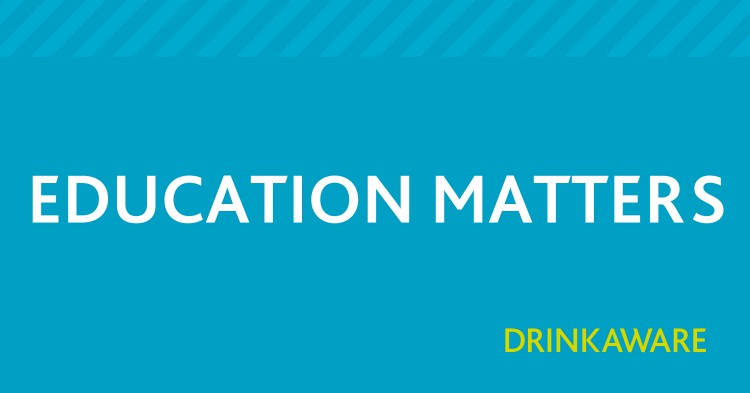3 minute read.
On a cold, dark November morning in 2018, my colleague and I set off from Waterford at the crack of dawn to drive to Athlone. Our mission: to train in the Drinkaware Education Programme. We are both S.P.H.E (Social, Personal & Health Education) teachers and substance abuse is a very important topic in our curriculum. As we are experienced teachers, we had been imparting the same facts and generating the same discussions for years. To be honest, I wasn’t sure what more I would gain. However, we both felt that, at the very least, we would return to our school with a few extra ideas in our back pocket. The training day turned out to be so much more than that.
It was clear from the outset that the facilitators were passionate about getting the message across. We left Athlone that evening with an entirely refreshed attitude and a great sense of optimism. We realised that this was a whole new way of teaching the topic and genuinely felt that it would be so much more effective than what we had been doing thus far.
Alcohol misuse is such a scourge in Ireland. I remember, as a child, having a friend whose father was an alcoholic. They survived on a diet of potatoes and cabbage for dinner every day because there was little or no money to buy food. Alcohol holds a very important place in the Irish psyche: people drink when they are happy (weddings, 18th birthday parties, 21st birthday parties) and when they are sad (funerals). What is obvious to me is that young people seem to start drinking younger and are sometimes allowed to do so by their parents, who claim that they would prefer their children to do it in front of them instead of hidden away somewhere with their friends.
I remember when I started delivering the programme to a class of second year students, when the topic of drinking at home, in front of parents came up, one girl protested and said that she felt it was a bad idea. Another student told her to ‘relax’! There was certainly plenty of work to be done!
It has become so important to start educating teenagers in a timely fashion about the risks they are taking by consuming alcohol under-age, to ensure that they are more likely to think twice about drinking.
In the Drinkaware Programme, the units of learning, the format and the supporting resources have meant that over the past three years, alcohol abuse has become one of the easiest and most satisfying topics to teach. I remember back in the nineteen eighties, the Reagan administration in the U.S launched an anti-drug programme entitled ‘Just Say No’. Studies have found that it often had the opposite effect. Instead of telling them to say ‘no’, (which rarely works – after all, they are teenagers), the programme attempts to influence their behaviour, challenge social and societal norms (which they learn at home) and most importantly, suggest alternatives to drinking. It is sometimes forgotten that school is such an important part of a teenager’s life. We are in the privileged position of being an agent for change.
From first year to third year, the programme covers topics including alcohol, friendship, self-esteem, communication skills, health & wellbeing and healthy alternatives in a developmentally appropriate manner. Regarding the communication skills unit, for instance, first year students learn from the perspective of social skills and alcohol, in second year, from the perspective of assertiveness and in third year from the perspective of decision making. The variety the programme offers including quizzes, video clips, reflective learning exercises, home tasks and case studies really resonates with the young people I teach. They have told me that as a result of the programme, they have learned a variety of skills such as the ability to say ‘no thanks’ and also the concept of the ‘one good adult’ who they can confide in if they find themselves in a difficult situation involving alcohol or other substances.
To my mind however, it is vital to educate parents too, some of whom (according to their children) think that is OK to let their children drink in front of them. This is more than a sip of champagne on the occasion of a birthday or on New Year’s Eve. This is actually buying lager or cider for their children and letting them drink it, often with their friends. I wonder what is the rationale behind this thinking. In any case, there needs to be a two-pronged approach to the issue – educating the parents/guardians as well as the students.
Mary Kelleher is a teacher in Newton Post Primary, multidenominational co-educational school in Waterford City. Mary participated in the Drinkaware Junior Cycle Alcohol Education Programme training day held in the Hodson Bay Hotel in Athlone in November 2018. You can read more about teachers’ experiences with the JC AEP or email Martha Sweeney Education Programme Manager for more information about the Junior Cycle Alcohol Education Programme (JCAEP) or the Parent workshop we facilitate on “Having the conversation with your child about alcohol”.


